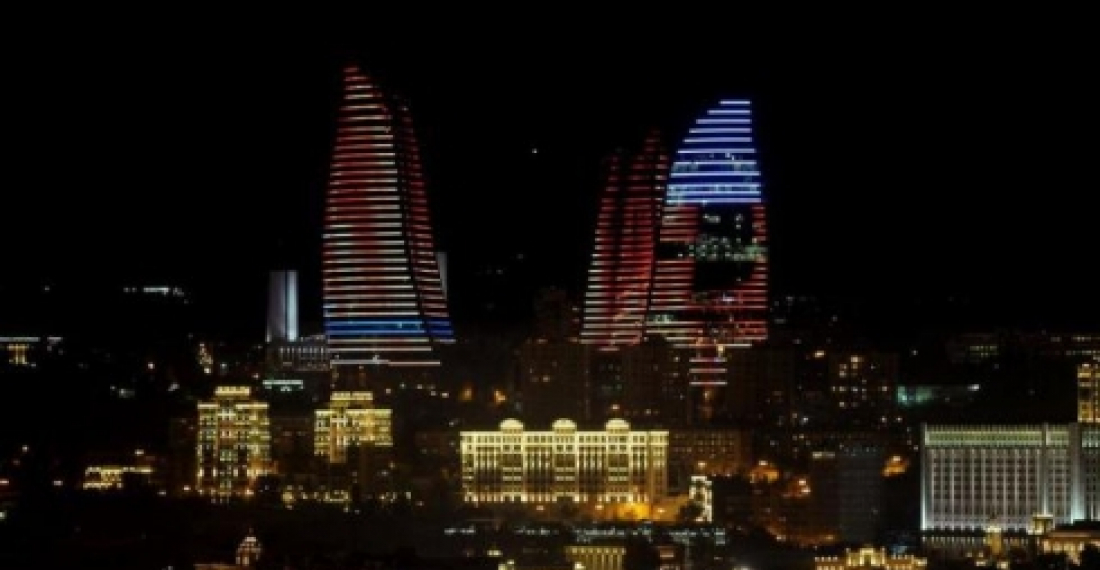LINKS analysis, looks at the achievements of Azerbaijan in the last decade and what the Azerbaijan government would like foreigners to see when they visit the country.
The Eurovision Song Festival is in in full swing in Baku, and thousands of journalists, musicians and fans are in the Azerbaijani capital for the occasion. Most of them would not have heard that there existed a country called Azerbaijan until recently, let alone that they would visit it.
When it became known last year that Azerbaijan had won the Eurovision festival, and that it would host the 2012 event, the Azerbaijani government immediately made it clear that it would use the occasion to show-case the new Azerbaijan to the world. It was too good an opportunity to be missed, with tens of millions of viewers throughout the world. And there was indeed a lot to show.
Thanks to the oil wealth of recent years Azerbaijan has been going through a period of transformation. On the surface this reflects itself through the changing Baku skyline. Soviet Baku was a functional, rather than a pretty city, and the Azerbaijani government set out to change this. Dozens of iconic buildings sprang up throughout the capital. New cultural facilities have been mushrooming over the last years, and hundreds of old residential buildings have been spruced up. The architectural feel of the city has changed. Yet this outside change is only part of the story.
Azerbaijanis have been changing too. In Soviet times Azerbaijan was generally considered backward. The Communist leadership of the Azerbaijani SSR had to struggle with Moscow to secure places for Azerbaijani students at top Soviet Universities through a quota system rather than on qualification. The first years after independence were years of political turbulence, culminating in a massive defeat in the war with Armenians which resulted in the loss of large chunks of territory. Tens of thousands of displaced people descended on Baku and other towns adding to the misery of people.
Tackling these issues has been the main challenge that the government of Azerbaijan, headed first by Heidar Aliev, and afterwards by his son Ilham, set for itself.
The government had one big advantage: the revenue from oil. Managing the oil sector was therefore the first objective. An agreement with Western companies and countries, known as the “deal of the century”, secured a smooth production process. The construction of the Baku-Tbilisi-Ceyhan pipeline ensured the transportation of oil to European markets, bypassing the Russian bottle neck. Revenues started flowing in, first in small amounts, but in the last five years in billions.
From being the country of losers and refugees the government sought to turn Azerbaijan into a country of winners. A new sense of confidence was encouraged.
This reflected itself in foreign policy, where the government became much more assertive on the international arena. The message to Turkey, the US, Russia, Iran and others in the last years was not to take Azerbaijan fore-granted. Friendship was reciprocal and Azerbaijan expected to get as much as it would give. The election of Azerbaijan to the UN Security Council at the end of 2011 was seen as the culmination of this successful policy.
On the domestic front the government moved to rehouse refugees, to start building the non-oil sector of the economy, to invest heavily in defence spending and to implement a cadre policy aimed at preparing a new generation of Azerbaijanis technocrats. Hundreds of young Azerbaijanis were sent to study overseas, and specialised institutions, such as the Azerbaijan Diplomatic Academy were established.
Success was also sought in the fields of sports and culture. Sports facilities were brought up to world standard and various international events were held in Baku. Azerbaijani started winning gold medals in competitions. The Eurovision victory symbolised yet another benchmark reached.
The government of Azerbaijan feels that it has achieved the objectives that it set out to achieve. The country’s statehood is secured, the country is on the road to development and it is now a respected international player.
Tomorrow, in part 2: The failures.
Source: This is the first of a three part special report prepared exclusively for commonspace.eu by LINKS analysis ©







